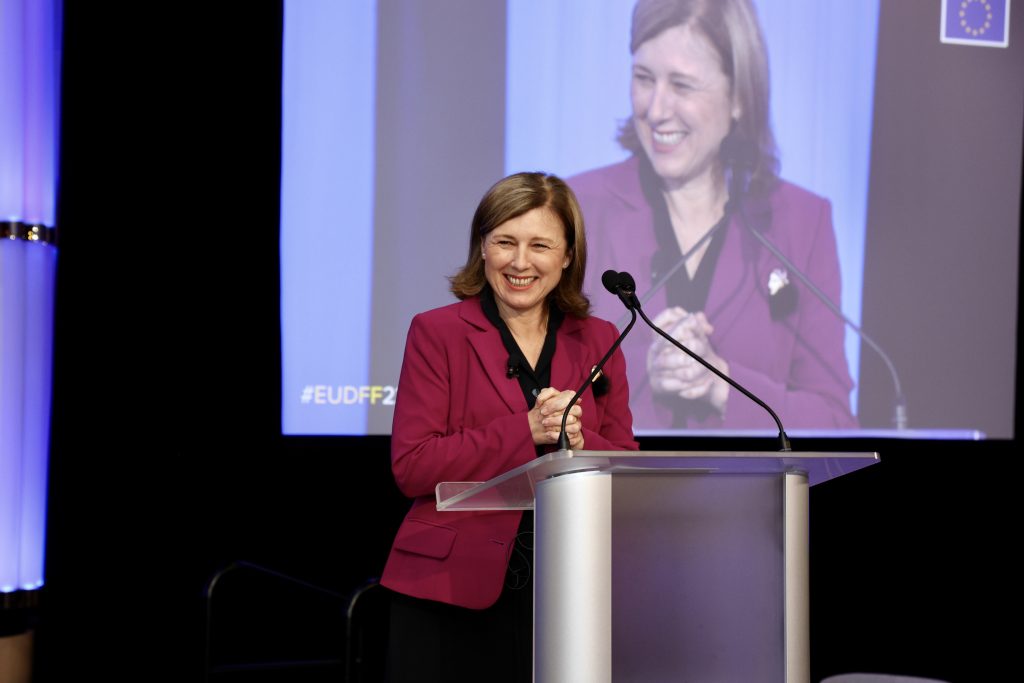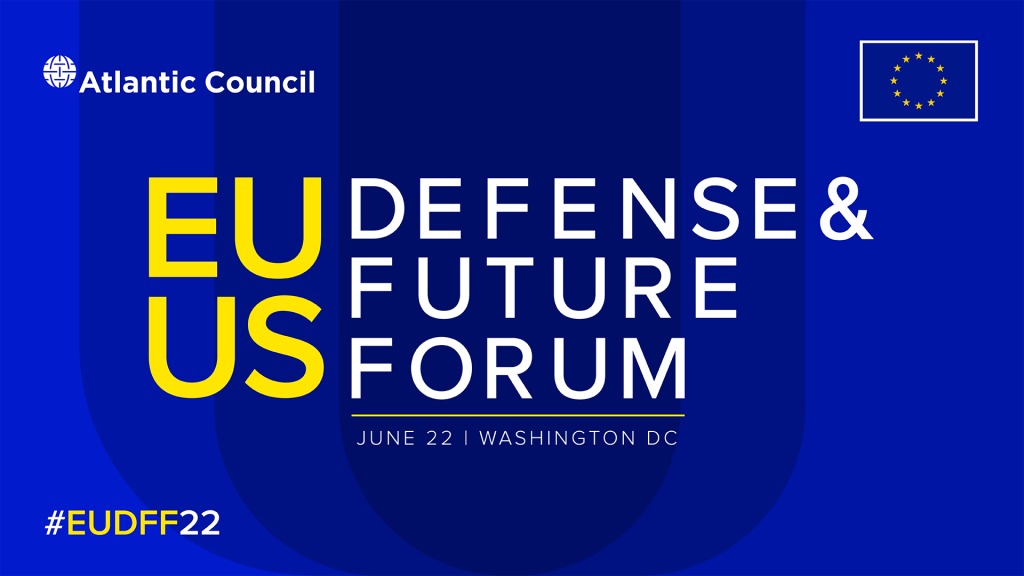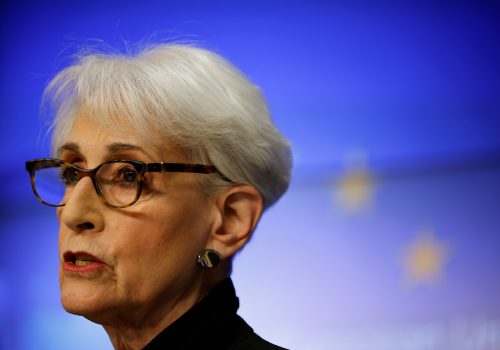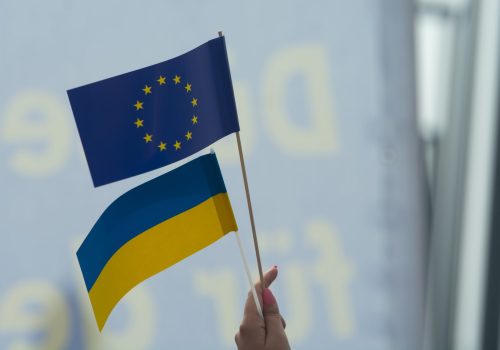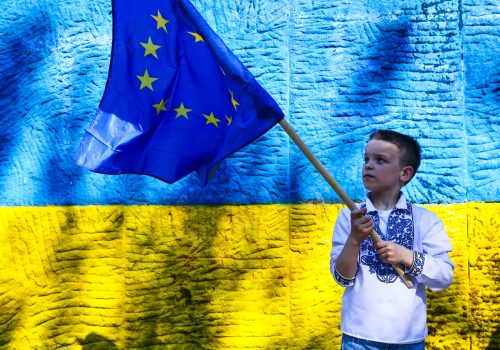Watch the full event
Although it “rarely makes a blast,” disinformation is “potentially even more dangerous” than conventional weaponry, according to Věra Jourová, vice-president of the European Commission for values and transparency.
During the closing session of the Atlantic Council’s EU-US Defense & Future Forum on Wednesday, Jourová discussed some of the lessons Europe has taken away from its struggle against “information manipulation” amid the COVID-19 pandemic and Russia’s invasion of Ukraine.
Tackling the scourge of disinformation—which most recently helped Russia lay the groundwork for its invasion both at home and abroad—requires a nuanced strategy and a transatlantic approach, she said. “We face similar problems, so it would make sense to find similar solutions.”
Here are the key takeaways from her comments, including a discussion with Washington Post technology reporter Cristiano Lima:
History never ends
- Jourová invoked the late US Secretary of State Madeleine Albright’s 2018 book, Fascism: A Warning, to caution that given the right circumstances—particularly ignorance and indifference—tyranny is never far away: “See what’s happening now in Ukraine?”
- That danger was nurtured by Kremlin propaganda, which sought to whip up public opinion against Ukraine in a war that quickly led to mass atrocities committed by Russian soldiers. “This is why we have to take information manipulation very seriously,” she said.
- Beyond traditional media, Jourová described how social media platforms—once hailed as transformative and full of promise—are now playing a “dividing role” in society and enabling bad actors. “We need to end the digital Wild West, which is to disinformation what wind is to wildfire,” she said.
‘The time for non-action is over’
- While Jourová acknowledged that there was “no silver bullet” to solve this “societal issue,” she highlighted two steps the European Union has taken to fight disinformation: the Digital Services Act , which seeks to crack down on disinformation that results in public harm, and the newly created Code of Practice on Disinformation, a nonbinding framework that includes a wide array of signatories, from major platforms to civil activists.
- The overall goal of the latter, Jourová added, is to “disempower bad actors” and stop platforms from cashing in on disinformation through advertising. “We have a clear message to the signatories: ‘Resist making money from dirty content.’”
- It’s also aimed at boosting transparency around “the wall of algorithms” that delivers content to people. “We want the users to be more in control, like they are when they are holding the remote control of an old-fashioned TV: They choose the channel and the program,” Jourová said.
- In her closing comments, Jourova called for a “structured dialogue” with US officials, researchers, and other civic actors to seek ways to enforce decent digital behavior without taking away any personal freedoms. “This is about whether we will be able to defend democracy and democratic systems in the digital age.”
Dan Peleschuk is the editor of New Atlanticist.
Watch the full event
Further reading
Wed, Jun 22, 2022
Wendy Sherman and Stefano Sannino on Ukrainian EU membership, Russian escalation, and Chinese technology
Transcript By
US Deputy Secretary of State Sherman and European External Action Service Secretary-General Sannino joined the Atlantic Council to talk about the transatlantic relationship and the roles of the European Union and United States in addressing the world's challenges.
Tue, Jun 21, 2022
What would EU candidate status mean for Ukraine?
UkraineAlert By Peter Dickinson
Ukrainians expect the country to be granted official EU candidate nation status at this week's summit of European leaders but what would this mean for Ukraine's broader ambitions for greater Euro-Atlantic integration?
Sun, Jun 19, 2022
EU candidate status for Ukraine is the ideal response to Russian aggression
UkraineAlert By Diane Francis
European Union leaders must decide this week whether to grant Ukraine official EU candidate nation status. This is a critically important moment for Ukrainians that will also shape the future direction of the entire continent.
